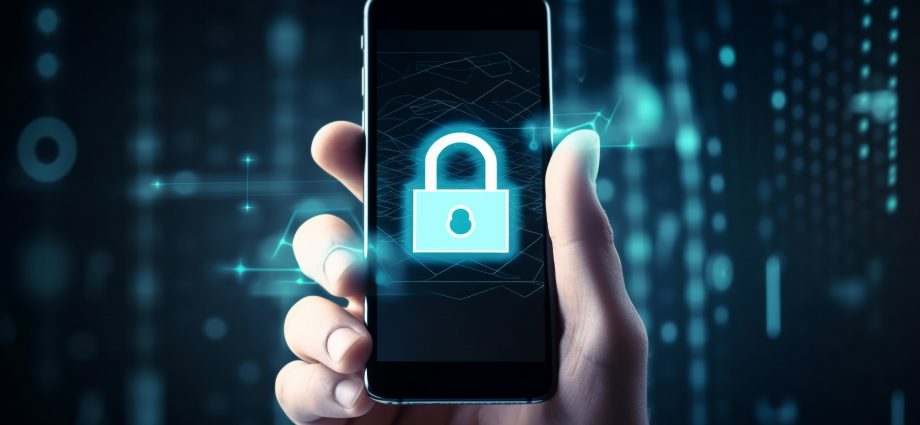Since its debut in November 2022, ChatGPT, an artificial intelligence (AI) chatbot, has generated significant attention due to its remarkably human-like and precise responses.
In just two months post-launch, this auto-generative system achieved an unprecedented milestone, amassing a user base of 100 million monthly active users. However, as its popularity continues to soar, the cybersecurity community is engaged in a lively debate about whether this technology will bolster internet security or inadvertently empower those with malicious intentions.
AI software presents a multitude of cybersecurity applications, encompassing advanced data analysis, streamlining repetitive tasks, and assisting in risk assessment. Nevertheless, shortly after its introduction, it became evident that this user-friendly and freely accessible chatbot could potentially aid hackers in penetrating systems and devising sophisticated phishing tools.
Hence, the question arises: Is ChatGPT a blessing bestowed upon the realm of cybersecurity, or a menace exploited for nefarious purposes? To uncover the answer, a comprehensive examination of its advantages, drawbacks, and future prospects is essential. Let’s delve into this matter.
What are the present risks associated with ChatGPT?
Like any emerging technological innovation, ChatGPT is not exempt from potential drawbacks.
Presently, the most widely discussed concern regarding this chatbot revolves around its susceptibility to facilitate the creation of highly convincing phishing messages, which are often employed in malicious email campaigns. The absence of robust security measures makes it relatively effortless for threat actors, even those whose primary language is not English, to harness the power of ChatGPT to compose sophisticated and alluring messages replete with near-perfect grammar within seconds.
Considering that Americans fell victim to scams amounting to $40 billion in losses in 2022, it becomes evident why criminals might exploit ChatGPT as a tool to gain a portion of this lucrative illicit market.
Furthermore, AI-powered chatbots also raise questions about job security. While the current state of this technology cannot entirely replace highly trained professionals, it can significantly reduce the workload associated with reviewing logs and reports. Consequently, this could affect the staffing requirements of security operation centers (SOCs).
Though this software offers numerous advantages to cybersecurity businesses, there will inevitably be companies that adopt it merely due to its current trendiness, aiming to attract new customers. However, embracing the technology solely for its trendy status can lead to misuse, as some companies may neglect to implement adequate safety measures, thereby impeding the progress towards establishing an effective security program.
The advantages in cybersecurity provided by ChatGPT
Just like any emerging technology, disruption is an inevitable facet, but it doesn’t necessarily have to be detrimental.
In the realm of cybersecurity, the integration of ChatGPT can provide an additional layer of intelligence to complement manual tasks such as sifting through audit logs or inspecting network packets to distinguish genuine threats from false alarms. Leveraging ChatGPT’s capacity to identify patterns and search within specified parameters, it can also be effectively utilized for repetitive tasks and report generation. Consequently, cybersecurity companies can enhance their ability to calculate risk scores for threats affecting organizations, harnessing ChatGPT as a highly capable research assistant.
For instance, Orca Security, an Israeli-based cybersecurity firm, has embraced ChatGPT’s exceptional analytical capabilities to navigate through vast datasets and assist in managing security alerts. Recognizing the early potential of this chatbot in streamlining day-to-day operations, the company can also glean valuable insights from the technology, granting it a distinct advantage in refining its models to optimize ChatGPT’s applicability to its specific business needs.
Furthermore, the chatbot’s proficiency in natural language processing, which makes it adept at crafting phishing emails, can be harnessed to craft intricate security policies. These eloquent texts can be utilized on cybersecurity websites and in training materials, ultimately saving valuable time for esteemed team members.
The future of ChatGPT
ChatGPT’s AI technology is readily accessible to a vast global audience. Consequently, akin to any other competition, it boils down to a race to determine which side can harness this technology more effectively.
In this ongoing struggle, cybersecurity firms must remain vigilant, as malicious actors continually seek innovative ways to exploit ChatGPT for malevolent purposes that may not have been previously envisioned by the cybersecurity industry. Remarkably, this daunting challenge has not deterred investors, and ChatGPT’s future appears exceedingly promising. The recent infusion of $10 billion from Microsoft into OpenAI underscores the commitment to the continued expansion of ChatGPT’s knowledge and capabilities.
As we look ahead to future iterations of this technology, software developers must prioritize addressing its current lack of safety measures, recognizing that the devil lies in the details.
It is unlikely that ChatGPT can completely eliminate this problem, but it can incorporate mechanisms to assess users’ behavior and identify individuals who employ obvious prompts, such as requesting a phishing email in the guise of someone’s supervisor or attempting to confirm individuals’ identities.
OpenAI may also collaborate with researchers to refine its datasets, enabling the system to recognize instances when its text has been exploited in attacks elsewhere.
Nevertheless, these concepts present a myriad of challenges, encompassing rising expenses and concerns regarding data security.
In order to effectively combat the ongoing phishing epidemic, it is imperative to enhance public education and awareness for detecting such attacks. Furthermore, increased funding from cellular service providers and email service providers is essential to reduce the frequency of attacks in the digital landscape.
Concluding
Numerous products and services are poised to emerge from ChatGPT, offering substantial value to assist in safeguarding businesses as they endeavor to make a positive impact on the world. Concurrently, there will also be an array of novel tools crafted by malicious actors, enabling them to target a wider audience more swiftly and employing innovative methods.
The era of AI-powered chatbots is firmly established, with ChatGPT encountering competition from Google’s Bard and Microsoft Bing’s software, both vying to challenge OpenAI’s creation. However, it remains imperative for cybersecurity companies to view ChatGPT not only as an opportunity for revenue generation but also as a strategic asset, capable of both offense and defense.

